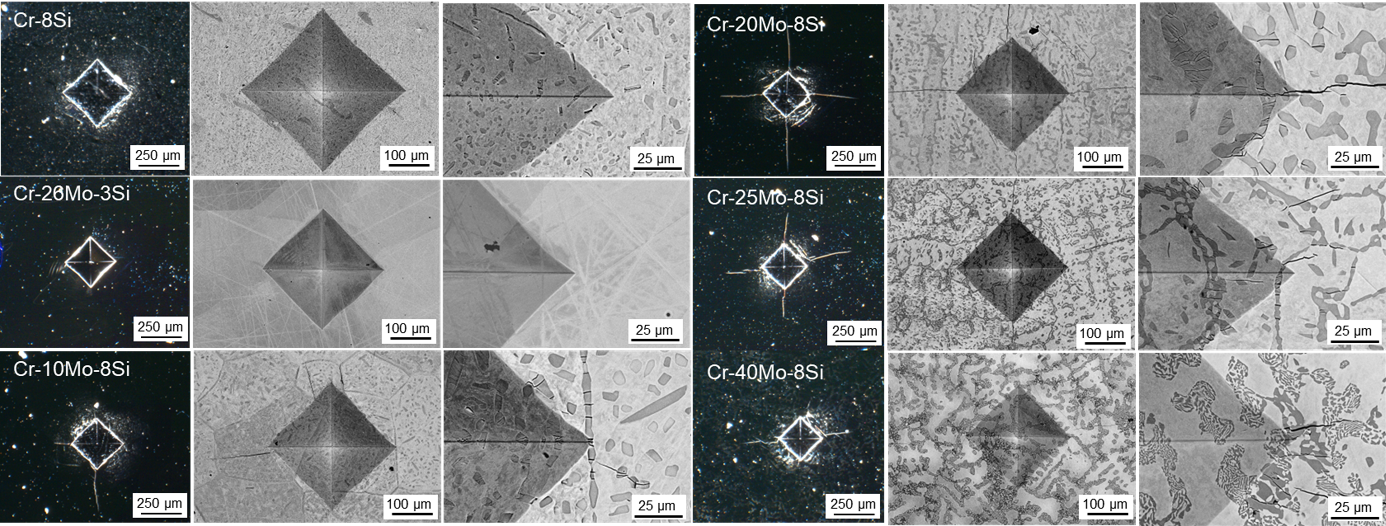L. Zander, M. Kerbstadt, E.M.H. White, M.C. Galetz
International Journal of Refractory Metals and Hard Materials 132 (2025), 107287, DOI: 10.1016/j.ijrmhm.2025.107287

This study investigates the effect of molybdenum in novel Cr-xMo-8Si alloys regarding hardness, fracture toughness and specific strength. With increasing Mo content in Cr-xMo-8Si alloys the hardness at room temperature (RT) linearly increases, with the dominant effect being solid solution hardening. Compression tests at temperatures between 23 and 900 °C show that the strength of Cr-xMo-8Si alloys also increases with increasing Mo content. The strength of Cr-25Mo-8Si (with a maximum specific strength of 170±24 N∙m∙g−1) is comparable to IN718 for temperatures up to 700 °C, and remains high up to the maximum tested temperature of 900 °C. However with Mo additions, the ductile to brittle transition (DBTT) regime is shifted to higher temperatures when compared to the reference material. The fracture toughness at RT ranges between 4 and 10 MPa∙m0.5. While it initially drops with increasing Mo content, it starts to increase for Mo ≥ 25 at.%, which can be explained by a grain refining effect of Mo benefitting the fracture toughness. From the results, strategies for increasing the low fracture toughness at RT of this class of novel alloys are derived, providing a path forward to enabling applications making use of their outstanding high temperature properties.